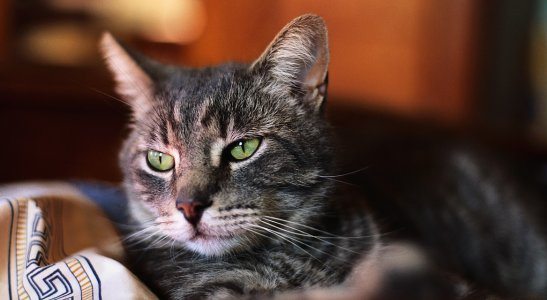PetSmart now has a new trick up its sleeve: five-star pet hotels.
PetSmart, the largest chain of pet supply stores in the U.S., is undeniably a market force to be reckoned with. Pet parents have been pulling dog biscuits and kitty litter off PetSmart’s shelves since the company opened its doors in 1987. Since then, the retail conglomerate with more than 38,000 employees has expanded its predominantly “dog-centric” products and services to meet the needs of customers with cats, horses, fish, birds and more.
The first in-store PetHotel opened in 2002 and has proven to be PetSmart’s fattest cash cow, as it can increase individual store revenue by 29 percent.
The five-star quality boarding exclusively for dogs and cats offers salon luxuries that compete with those of people hotels: a shampoo, massage and blow dry package, hair brushing, nail trimming. Holiday waiting lists have exceeded 400, and due to robust demand, PetSmart plans to add more PetHotels, growing its current 90 to 292 by 2010. Ultimate build-out is expected to be 540.
“(PetHotels are) on fire now,” says PetSmart Chairman and CEO Philip L. Francis.
But market dominance isn’t guaranteed or permanent. Despite soaring success with PetHotels and a revenue of $4.3 billion in 2006, PetSmart recently reported sales and earnings will be lower than predicted for 2007. It forecasts third-quarter earnings of 17 to 20 cents per share, with yearly earnings coming in at $2.02 to $2.07 per share. That’s down from initial earnings predictions of 21 to 23 cents per share in the third quarter and $2.08 to $2.10 per share for the year.
Hence the importance of PetHotels to PetSmart’s bottom line. Francis says he anticipates pet parenting will peak in 2020. As a result, PetSmart started a two-year market research endeavor to discover other industry needs it can meet. He says PetSmart might provide in-home and in-office services in the future, such as poop scooping and aquarium care in places of business.
“Success” is a word that takes on a different meaning depending on who you ask. Francis summed it up in three letters: TLC, or total lifetime care for the pet and parent.
The company’s nonprofit PetSmart Charities Inc. started in 1994 and is fundamental to PetSmart’s overall mission, as its adoption programs help alleviate pet overpopulation. PetSmart has saved more than three million lives to date, or one life every two minutes, through adoption programs such as the one in which Francis got his own dog, Bit O’Honey, a mixed breed third in line to be euthanized.
Despite PetSmart’s positive impact on pet adoption, it has received criticism recently because it’s considering selling rabbits, one of the most abandoned animals in the U.S.
From July to December 2007, 25 PetSmart stores out of about 1,000 sold rabbits as part of its own study to learn if this is a feasible new market. Based on findings, PetSmart may decide to sell rabbits at specific locations. “There are no adoptable rabbits in some towns,” says Francis, explaining the company’s decision.
PetSmart wouldn’t release the locations of all test stores, but confirmed three are in Arizona: Phoenix, Glendale and Tucson.
Kim Dezelon is director of fundraising for the Brambley Hedge Rabbit Rescue in Phoenix and is also a PetSmart shareholder. The nonprofit has been adopting out rabbits through PetSmart for more than a decade, placing more than 1,700 rabbits in homes.
“If consumer demand was so strong, we could have worked with (PetSmart) more closely to meet that demand with the rabbits at our shelter,” Dezelon says. “We are extremely disappointed. We’ve had a long standing relationship with PetSmart.”
But Francis says no determination of the pilot program’s future has been made and all considerations will be taken.
“We’re in the information gathering stage,” he says. “Nobody knows the truth. When we know it, we’ll act responsibly. We’re (making) enough financially, we don’t have to grub for every penny.”
To learn more about PetSmart PetsHotel, visit petshotel.petsmart.com.




